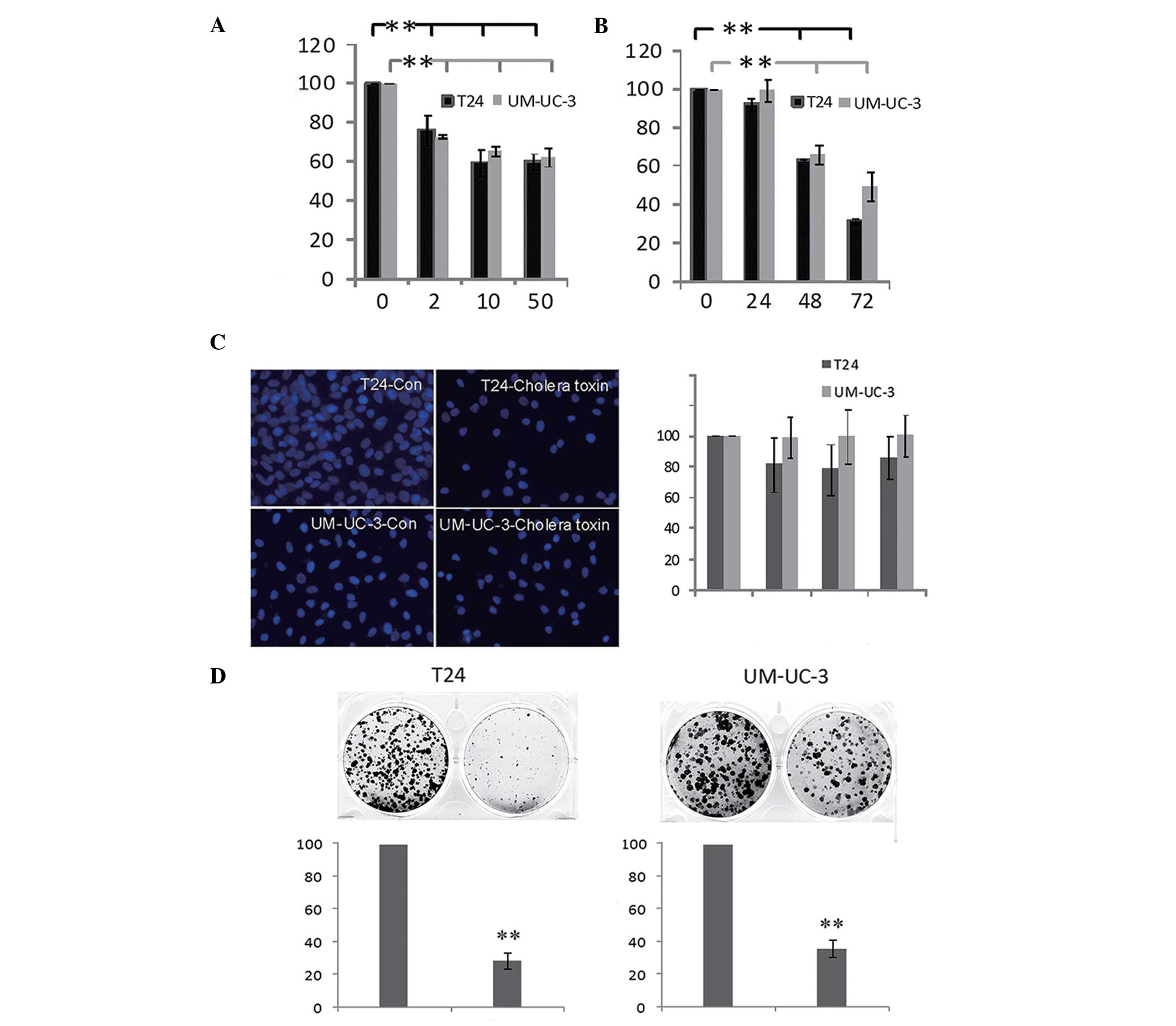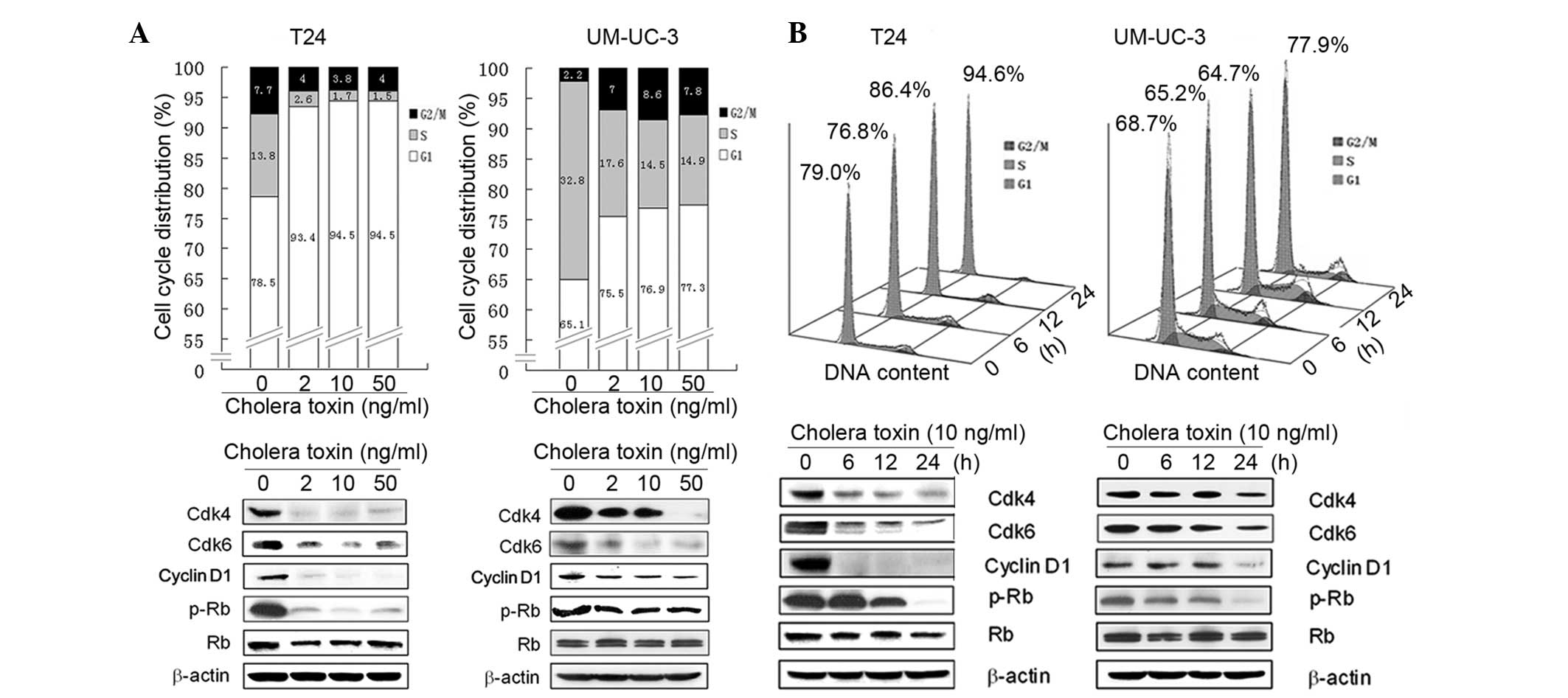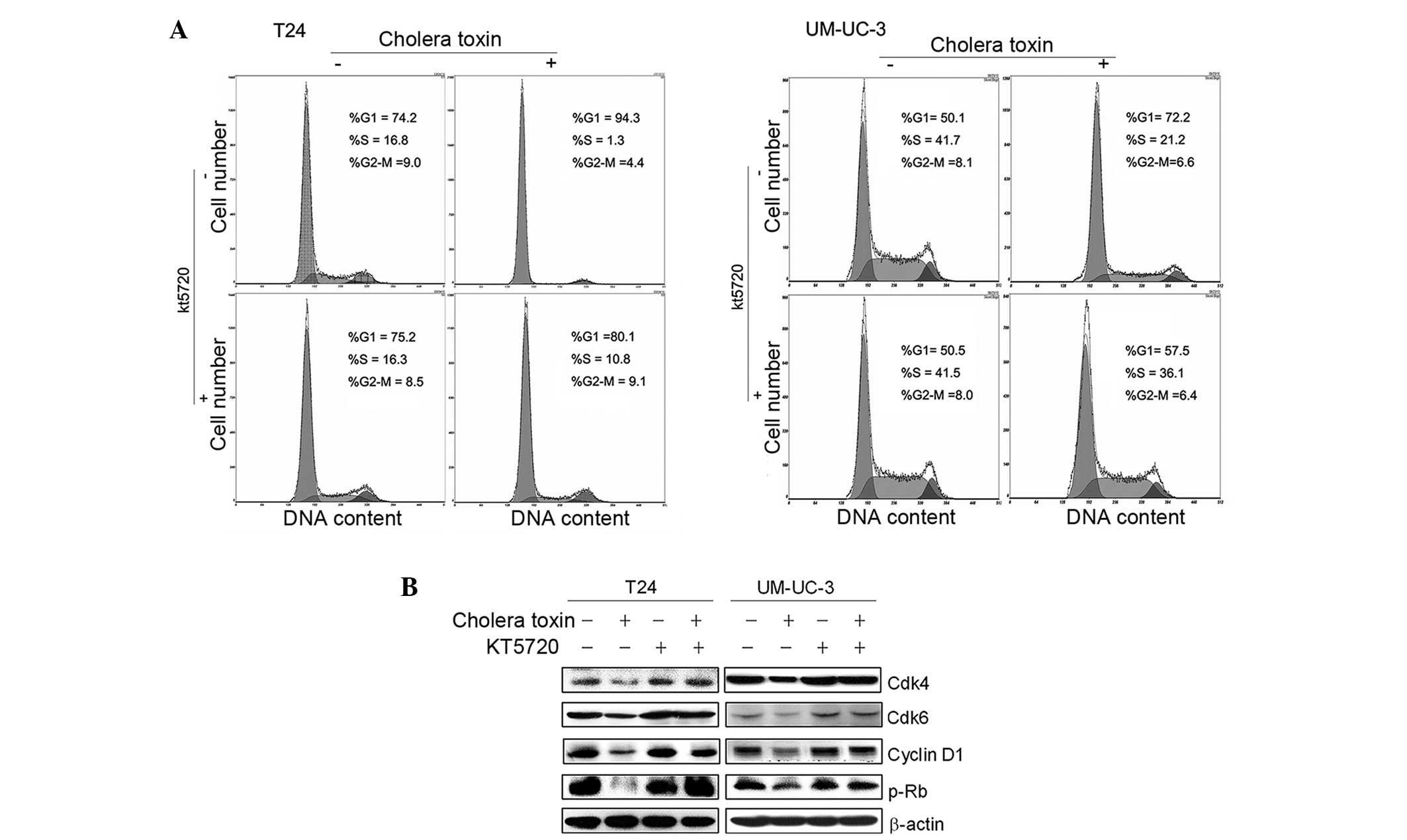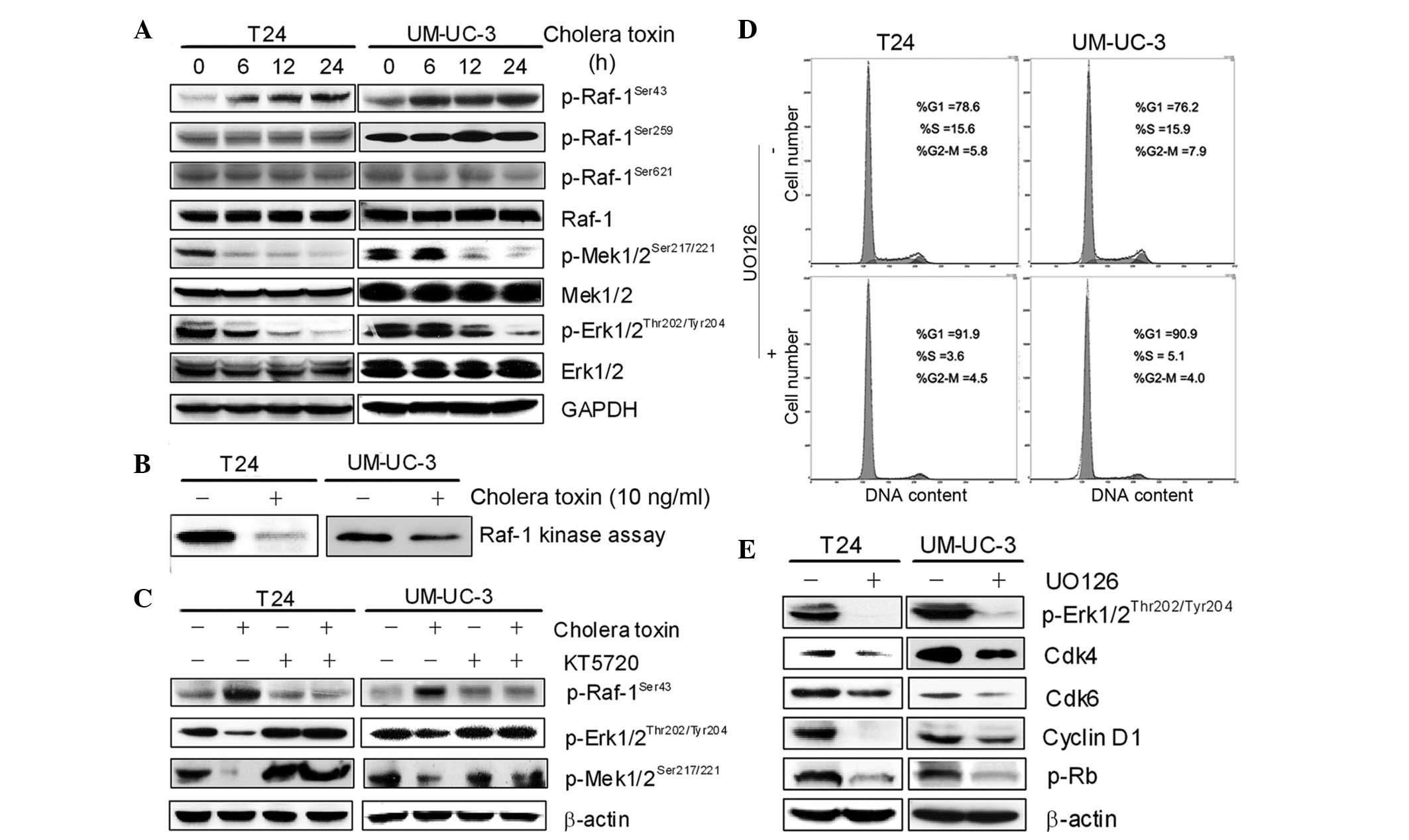Spandidos Publications style
Zheng X, Ou Y, Shu M, Wang Y, Zhou Y, Su X, Zhu W, Yin W, Li S, Qiu P, Qiu P, et al: Cholera toxin, a typical protein kinase A activator, induces G1 phase growth arrest in human bladder transitional cell carcinoma cells via inhibiting the c‑Raf/MEK/ERK signaling pathway. Mol Med Rep 9: 1773-1779, 2014.
APA
Zheng, X., Ou, Y., Shu, M., Wang, Y., Zhou, Y., Su, X. ... Xu, D. (2014). Cholera toxin, a typical protein kinase A activator, induces G1 phase growth arrest in human bladder transitional cell carcinoma cells via inhibiting the c‑Raf/MEK/ERK signaling pathway. Molecular Medicine Reports, 9, 1773-1779. https://doi.org/10.3892/mmr.2014.2054
MLA
Zheng, X., Ou, Y., Shu, M., Wang, Y., Zhou, Y., Su, X., Zhu, W., Yin, W., Li, S., Qiu, P., Yan, G., Zhang, J., Hu, J., Xu, D."Cholera toxin, a typical protein kinase A activator, induces G1 phase growth arrest in human bladder transitional cell carcinoma cells via inhibiting the c‑Raf/MEK/ERK signaling pathway". Molecular Medicine Reports 9.5 (2014): 1773-1779.
Chicago
Zheng, X., Ou, Y., Shu, M., Wang, Y., Zhou, Y., Su, X., Zhu, W., Yin, W., Li, S., Qiu, P., Yan, G., Zhang, J., Hu, J., Xu, D."Cholera toxin, a typical protein kinase A activator, induces G1 phase growth arrest in human bladder transitional cell carcinoma cells via inhibiting the c‑Raf/MEK/ERK signaling pathway". Molecular Medicine Reports 9, no. 5 (2014): 1773-1779. https://doi.org/10.3892/mmr.2014.2054


















